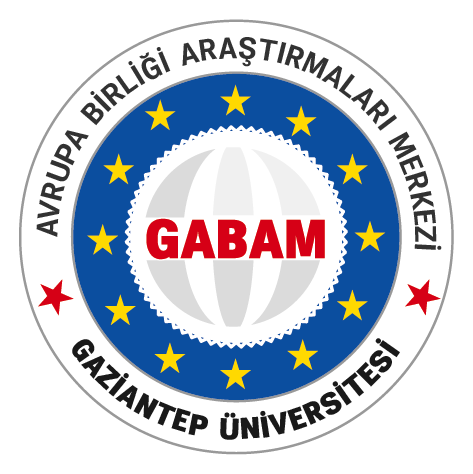Project name: Social Education on the Move SoMoveED
Fund name: KA203 – Strategic Partnerships for Higher Education
Project reference number: 2020-1-PL01-KA203-082186
Project starting and ending dates: 01/09/2020-31/08/2023 (36 months)
Total budget: 185.781,00 Euro
GAUN’s budget: 28.274,00 EUR
Gaziantep University Project Coordinator: Doç. Dr. Sinan Tankut GÜLHAN
Proje partners:
-
UNIWERSYTET ZIELONOGORSKI (Polond)
-
Universidade da Madeira (Portugal)
-
The University of Central Lancashire (UCLan) (UK)
-
GAZIANTEP UNIVERSITESI
-
UDRUGA ZA PROMICANJE INFORMATIKE, KULTUREI SUZIVOTA (Croatia)
-
UNIVERSITE DE BORDEAUX (France)
-
TEKIRDAG NAMIK KEMAL UNIVERSITESI
-
Asociatia de Initiativa Locala Roman 2002 (Romania)
-
Both Social B.V. (Netherlands)
-
UNIVERZITA KARLOVA (Czechia)
-
UNIVERSITA DEGLI STUDI DI MODENA E REGGIO EMILIA (Italy)
Project aim:
The aim of the project is to develop, implement and disseminate innovation in the form of a MODEL of MOBILE SOCIAL EDUCATION (MmsED) in higher education. Its attribute is organizing the teaching process in motion, outside the university walls, with the participation of stakeholders from outside the academic community (citizens, representatives of institutions and organizations, activists, people at risk of marginalization).
This model combines three important features of the educational process: (1) MOBILITY; (2) PARTICIPATION; (3) INCLUSION.
The listed features relate to both the content and form of the designed teaching tools and classes. Based on the tests we assume that the organization of didactic classes in motion, with the active participation of students and other people, promotes better preparation for social life, including the role of an active citizen.
We also assume that thanks to the introduction of the MODEL of MOBILE SOCIAL EDUCATION, the didactic offer, compared to the traditional model, will be more (1) CURRENT; (2) ADEQUATE FOR NEEDS; (3) ATTRACTIVE for class participants.
This model combines three important features of the educational process: (1) MOBILITY; (2) PARTICIPATION; (3) INCLUSION.
The listed features relate to both the content and form of the designed teaching tools and classes. Based on the tests we assume that the organization of didactic classes in motion, with the active participation of students and other people, promotes better preparation for social life, including the role of an active citizen.
We also assume that thanks to the introduction of the MODEL of MOBILE SOCIAL EDUCATION, the didactic offer, compared to the traditional model, will be more (1) CURRENT; (2) ADEQUATE FOR NEEDS; (3) ATTRACTIVE for class participants.
Project activities:
I. Three books published
• STUDIES ON THE MOBILE MODEL OF SOCIAL EDUCATION (O1) - a collection of jointly created scientific texts (theoretical, methodological, empirical) on the subject of mobile, participatory and inclusive methods and their application in academic didactics. Studies will provide a common intellectual basis for project partners and other institutions and people using the developed model.
• STUDENT'S HANDBOOK (O3) containing descriptions of good practices in the application of innovative educational tools in the field of social and humanities education. The handbook shows how students can use these methods in future professional practice.
• TEACHER'S TOOLKIT (O4) - containing tips on how to use methods by teachers (walks, study visits, educational field games).
II. Other outputs
• INSTRUCTIONAL VIDEOS (O2) - containing tips on conducting classes using a) study visits; b) research walks; c) educational field games.
• A NEW PROGRAM CONTENT (O5) - innovative forms and tools of social and humanistic education.
• The MOOC on the Education on the Move (O6) - online course for those who want to know how to conduct activities based on the education on the move.
Project Expected Results:
1. DEVELOPED AND STRONG NETWORK OF INTERNATIONAL COOPERATION - to create new projects together.
2. INCLUDING and USING new content of the CURRICULA of selected academic subjects - innovative forms and tools of social and humanistic education. 3. INCLUDING new subjects related to the use of innovative forms and tools of social and humanistic education.
4. USING PUBLICATIONS WHICH ARE RESULTS OF THE PROJECT IN ACADEMIC EDUCATION (by students and the teachers).
5. INFLUENCING THE PARTNERS INSTITUTIONS by adapting and implementing good practices to the teaching practice.
Project Website: http://www.somoveed.is.uz.zgora.pl/
For details please visit: https://erasmus-plus.ec.europa.eu/projects/search/details/2020-1-PL01-KA203-082186

